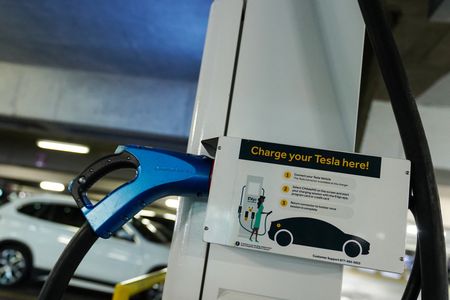 1
1 1
1
By David Shepardson
WASHINGTON (Reuters) -A group of 27 Senate Republicans on Thursday called on the Biden administration to drop its plan to drastically cut vehicle emissions through 2032 and ramp up electric vehicle sales.
In a letter led by Senator Shelley Moore Capito, lawmakers said the administration plan will “effectively mandate a costly transition to electric cars and trucks in the absence of congressional direction.” The Environmental Protection Agency proposal issued in April estimates sharp emissions cuts would result in 67% of new light duty vehicle sales as electric by 2032.
The EPA, which did not immediately comment Thursday, proposed a 56% reduction in projected light duty fleet average emissions over 2026 requirements. The EPA also proposed new stricter emissions standards for medium-duty and heavy-duty trucks through 2032.
The Biden administration’s push to ramp up electric vehicle sales is facing significant protests from Republicans in Congress. Environmental groups say the administration should go farther in tightening emissions limits. Republicans have also sought to cut incentives for electric vehicles.
Earlier this week, a group of 151 House Republicans, led by Energy and Commerce Committee Chair Cathy McMorris Rodgers also asked the EPA rescind the agency’s proposed emissions standards for light- and medium-duty vehicles and heavy-duty trucks.
The House Republicans called the rules the “latest attempt to carry out President Biden’s radical rush-to-green agenda, which will take away Americans’ choice when it comes to the kind of vehicle they drive—and arm-twist people into buying vehicles they can’t afford.”
Earlier this week, California asked the Biden administration to approve its plan to require all new vehicles sold in the state by 2035 to be either electric or plug-in electric hybrids, a landmark move that could speed the end of gasoline-powered vehicles. The Biden administration has not endorsed setting a date to end the sale of gas-powered vehicles.
A parallel proposal from the National Highway Traffic Safety Administration to boost fuel economy standards beyond 2026 was submitted to the White House for review last week.
(Reporting by David Shepardson; Editing by Chizu Nomiyama)